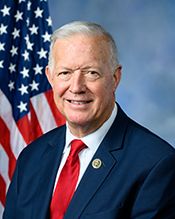H.R. 711: Fairness, Anti-discrimination and Individual Rights Act of 2025
This bill, known as the Fairness, Anti-discrimination and Individual Rights Act of 2025, aims to establish equal protection under the law by prohibiting discrimination and preferential treatment based on race, color, or national origin in various federal actions. Here’s a breakdown of its main components:
Prohibition Against Discrimination and Preferential Treatment
The bill prohibits the federal government and its employees from:
- Intentionally discriminating against or favoring individuals or groups: This applies in contexts such as federal contracts, employment within federal agencies, and any other federally conducted programs or activities.
- Encouraging contractors or recipients of federal assistance to engage in such discriminatory practices.
State and Private Entities Receiving Federal Aid
Entities that receive federal financial assistance, including state and private organizations, are also prohibited from:
- Discriminating or granting preferences: This applies to employment opportunities, contracts or subcontracts, and admissions to educational institutions.
Compliance Review
Within six months of the bill's enactment, federal agencies must:
- Review existing policies: Each department or agency head, in consultation with the Attorney General, will review and modify their policies and regulations to ensure they comply with the new law.
- Report findings: They must report the results and any changes made to the appropriate congressional committees.
Legal Remedies
The bill provides a framework for individuals who believe they have been wronged under this law:
- Civil action: Aggrieved individuals can pursue civil action against violators, including government entities, and seek appropriate relief, which may include back pay.
- Attorney's fees: If a plaintiff prevails, they may be awarded reasonable attorney's fees as part of their case costs.
Effect on Existing Cases and Contracts
This legislation does not impact:
- Pending cases: Any legal cases that are already ongoing at the time of enactment will not be affected.
- Existing contracts: Contracts or subcontracts that were active before the enactment will also remain unchanged, even if options are exercised after the law is passed.
Definitions
Key definitions provided in the bill include:
- Federal Government: Refers to both the executive and legislative branches of the U.S. government.
- Preference: Defined as any kind of advantage, which could include quotas, set-asides, or other numerical objectives.
Additional Notes
The bill clarifies that it does not influence any laws regarding immigration or nationality. It aims to ensure consistency with existing anti-discrimination laws while establishing specific controls over federal and state dealings concerning race, color, and national origin.
Relevant Companies
None found.
This is an AI-generated summary of the bill text. There may be mistakes.
Sponsors
9 bill sponsors
Actions
2 actions
| Date | Action |
|---|---|
| Jan. 23, 2025 | Introduced in House |
| Jan. 23, 2025 | Referred to the Committee on the Judiciary, and in addition to the Committees on Oversight and Government Reform, Education and Workforce, and House Administration, for a period to be subsequently determined by the Speaker, in each case for consideration of such provisions as fall within the jurisdiction of the committee concerned. |
Corporate Lobbying
0 companies lobbying
None found.
* Note that there can be significant delays in lobbying disclosures, and our data may be incomplete.
Potentially Relevant Congressional Stock Trades
No relevant congressional stock trades found.








